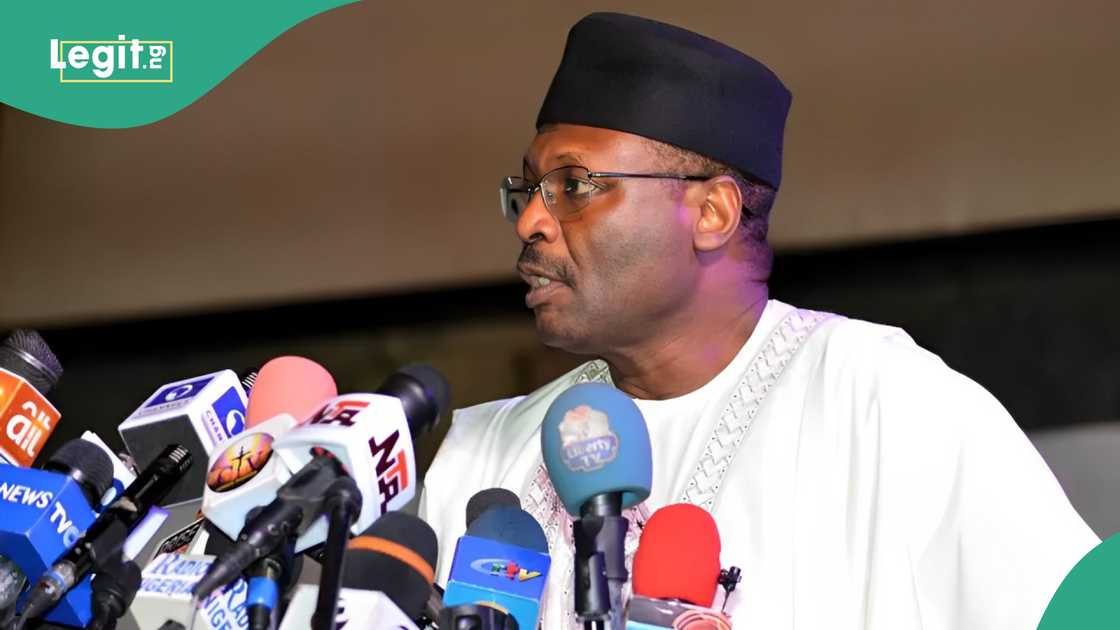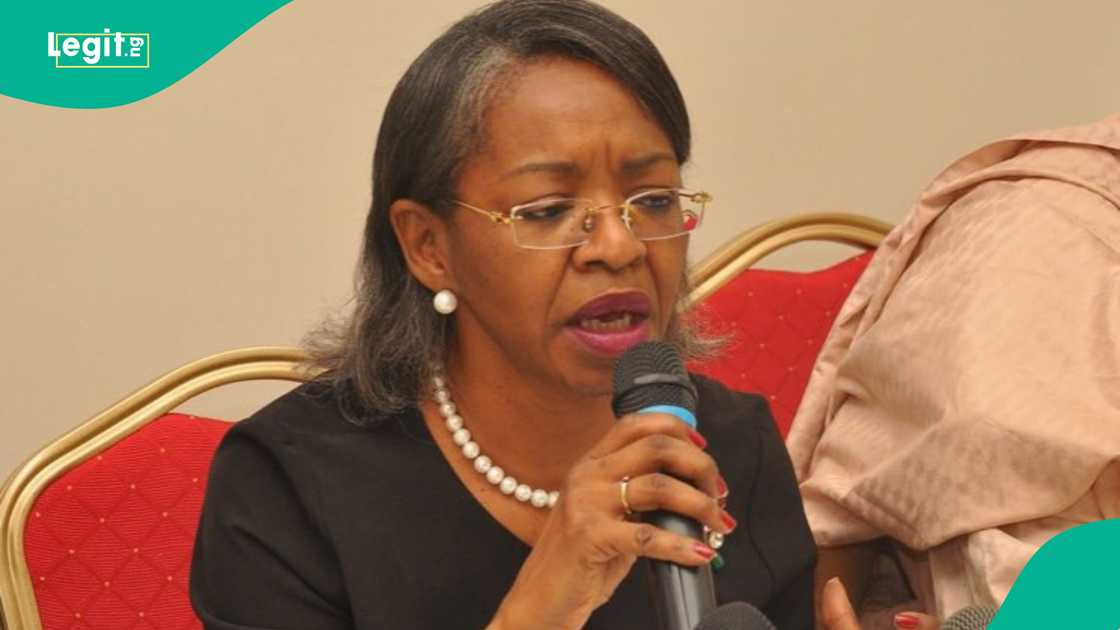In a significant development for Nigeria’s electoral institution, Professor Mahmood Yakubu has officially handed over the reins of the Independent National Electoral Commission (INEC) to May Agbamuche-Mbu, now serving as the acting national chairperson. This pivotal change at the commission’s topmost level comes at a time when Nigeria is gearing up for key electoral milestones, making leadership continuity and experience more critical than ever.
May Agbamuche-Mbu, lauded as INEC’s longest-serving national commissioner, stepped into her new role on Tuesday, October 7. The official transition took place during a gathering of resident electoral commissioners (RECs) at INEC’s Abuja headquarters. Her appointment as acting chair serves as a testament to her seasoned background and long-standing commitment to Nigeria’s electoral process.
INEC: Agbamuche-Mbu Takes Charge Amid Shifting Electoral Landscape
In his formal address to INEC commissioners and directors, Professor Yakubu urged seamless cooperation and unwavering support for Agbamuche-Mbu, highlighting the need for stability until a substantive chairman is appointed by the presidency. This appeal underscores the importance of unity within INEC, especially as electoral reforms and preparations for future elections continue to gain national attention.
For many Nigerians, the spotlight now shines on Agbamuche-Mbu, whose impressive record and unique background present new hope for the agency’s integrity and operational excellence. Here are five essential things to know about INEC’s new acting chairperson:
- Agbamuche-Mbu is an accomplished legal professional, boasting over 30 years of expertise in law, dispute resolution, and public service. Her credentials reflect a deep understanding of Nigeria’s legal framework and its impact on the electoral process.
- Her personal journey—born in Kano and with roots in Delta State—gives her a rich blend of northern and southern perspectives, a bridge that many believe will aid in unifying the commission’s often diverse constituencies.
- She previously served as the editor of THISDAY LAWYER, where she published more than 120 “LEGAL EAGLE” editorials between 2014 and 2016, tackling complex legal issues and bringing them to the public in accessible language.
- Beyond her editorial and legal work, Agbamuche-Mbu is a certified arbitrator, having acted as secretary for the Chartered Institute of Arbitrators (Nigeria branch). This experience is particularly relevant in resolving electoral disputes and fostering consensus within the commission.
- While Agbamuche-Mbu maintains a private family life—public details remain scant—her hyphenated surname signals marital ties, in line with her preference for keeping personal affairs away from public glare.

Source: Facebook
Tinubu’s Response: Recognising Yakubu’s Legacy
As Professor Yakubu’s tenure comes to a close after serving as INEC chairman for two full terms, his legacy and service have not gone unnoticed at the country’s highest leadership level. President Bola Tinubu, acknowledging Yakubu’s contributions, officially accepted his departure at the end of his second five-year term, which began in November 2015 and was renewed in 2020.
According to a statement released by presidential spokesperson Bayo Onanuga on October 7, 2025, President Tinubu commended Yakubu for his commitment to “strengthening Nigeria’s democracy,” particularly his role in conducting credible elections. In recognition of these efforts, the president conferred upon Yakubu the prestigious honour of Commander of the Order of the Niger (CON), reflecting both gratitude and national respect for Yakubu’s stewardship of the commission.
Such recognition resonates not only within Nigeria but also among other West African democracies grappling with electoral reforms and leadership transitions. Nigerian political analysts, including Abuja-based public policy commentator Hakeem Fagbemi, observe that “recognition for electoral reformers in Nigeria is crucial for building public trust and encouraging the next generation of technocrats to serve.”
Yakubu Explains His Decision to Step Down
In his remarks, Professor Yakubu described his decision to transfer responsibility at INEC as necessary to ensure an orderly and prompt transition. Handing over the organisation’s leadership, Yakubu stated, would allow the new acting chair to quickly acclimatise and focus on critical electoral preparations—especially important as Nigeria’s political calendar progresses.
“After nearly ten years at the helm, I am acutely aware of the challenges that lie ahead,” Yakubu reportedly said as quoted by sources familiar with the commission. He emphasised that succession planning is a cornerstone of stable institutions and expressed confidence that INEC will remain steadfast in promoting credible elections under new stewardship.
Several observers—including members of civil society like Uche Eze from the Transition Monitoring Group—have applauded Yakubu’s choice to prioritise a seamless leadership transition. According to Eze, “Building institutional confidence requires openness and readiness to hand over to new leadership, especially before major election cycles.”
Electoral Leadership: National and Regional Implications
The appointment of May Agbamuche-Mbu as acting INEC chair is drawing reactions nationwide and in the wider West African region. Nigeria’s electoral outcomes often have ripple effects in neighbouring countries, given the country’s pivotal role and its large democracy.
Political scientists point to INEC’s critical role in maintaining Nigeria’s stability, with smooth leadership transitions being fundamental to averting crises of confidence that can destabilise electoral timelines. Comparatively, issues of succession and transparency remain pressing in several African electoral commissions, with stakeholders closely tracking how INEC manages this current transition.
In Ghana and across West Africa, democratic advocates note that how Nigeria’s INEC evolves under Agbamuche-Mbu’s interim leadership could offer lessons in resilience, inclusion, and legal innovation for electoral agencies continent-wide.
Challenges Ahead for INEC and Next Steps
While expectations are high for Agbamuche-Mbu, experts caution that several operational and systemic challenges remain for INEC. These include maintaining voter confidence, refining election technology, resolving logistical bottlenecks, and addressing disputes proactively.
According to Dr. Funmi Ogun, a Lagos-based legal analyst, “the new acting chair must work collaboratively with RECs, security agencies, and the judiciary to ensure reforms begun under Yakubu are accelerated and trust in INEC deepens.” Key priorities include improving electoral transparency, strengthening dispute resolution mechanisms, and ensuring greater participation from marginalised groups.
With the president expected to nominate a substantive chair in coming months, INEC’s role as a guardian of Nigeria’s democratic instruments remains under scrutiny, both domestically and abroad. The coming period will test not just leadership but also INEC’s institutional adaptability and commitment to democratic ideals.
As Nigerians watch these developments unfold, the broader hope is for a smooth and transparent transition that further cements INEC’s reputation for fairness and competence, inspiring trust across all regions and demographics.










